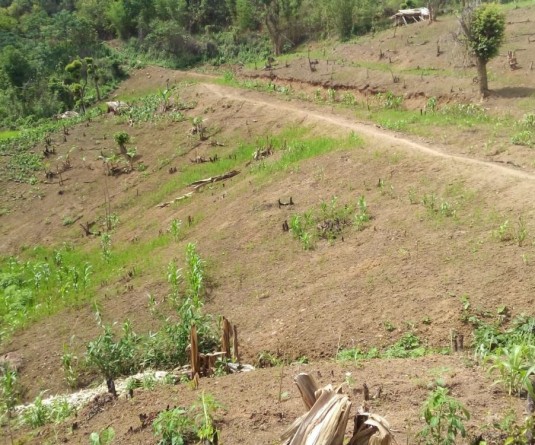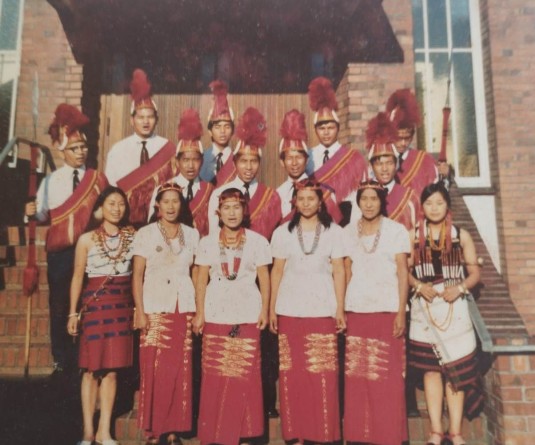
Issued by Forum for Naga Reconciliation
Introduction
The Forum for Naga Reconciliation (FNR), the Pitt Rivers Museum (PRM) and Naga researchers from the University of Edinburgh and the University of Melbourne have been collaborating to find ways forwards towards the future care of Naga ancestral remains in the Museum’s collections.
When PRM opened their doors on September 22, 2020, after being closed for a period of 5 months due to the COVID-19 pandemic, they removed human remains from their exhibition displays. This was a result of their comprehensive review, and renewed efforts to work with different communities to return ancestral human remains taken during the period of Britain’s imperialism. The Naga human remains are part of this endeavour, and Naga ancestral human remains have been taken down from their exhibits and stored in boxes. Currently, approximately 214 Naga ancestral remains (a combination of skeletal ancestral remains and objects made with components such as human hair or bone) are in the Museum’s care.
Dr Dolly Kikon, a Naga anthropologist, and Associate Professor at the University of Melbourne, on reading of PRM’s initiative in The Guardian, contacted the Museum’s Director to ask about the status of Naga ancestral human remains. Afterwards, she discussed with the FNR regarding the Naga ancestral remains in PRM. Eventually, the PRM reached out to the FNR due to its involvement in reconciliation work, which led to a dialogue examining issues together around repatriation of ancestral remains, the processes and procedures involved, and its intersection with reconciliation and social healing.
Based on these preliminary discussions with PRM, the FNR initiated discussions and conversations within Naga communities to assess and understand the issue of ancestral remains by interacting with various individuals from all over the Naga areas.
The PRM has expressed it is keen to work with FNR, “We know the FNR’s ongoing work on issues of healing, forgiveness, reconciliation, and mending historically difficult relationships within the Naga context, will be of crucial importance to help us to enable meaningful discussions among the Naga traditional elders, leaders and representatives of indigenous communities regarding the future care of these remains, including their restitution if and when requested.” In its strategic plans, the PRM has expressed its commitment to “a process of redress, reconciliation and social healing through collaboration with stakeholder communities through openness and listening with a focus of mending historically difficult relationships.”
The Process and Time Frame
The repatriation process of ancestral remains is inter-disciplinary and consists of several phases. The phases include Public Engagement, Provenance Research (identification of closest legitimate group or community that can claim ownership of the ancestral human remains), Documentation of opinion from different Naga cultural communities, making an Official Claim for repatriation based on response received from the communities, Visit of Naga cultural communities (tribes) to the PRM for examining the ancestral remains and fostering dialogue, and Approval and Returns of the ancestral remains.
The entire process may take anywhere between 8-15 years. Throughout this journey, the method we employ is participatory research which involves community engagement, field research, building public awareness and consensus, and adherence to international law. Further, the process is guided by a commitment to nurture reconciliation and healing, promote activities and reflection around decolonizing methodologies, and incorporate cultural practices and legal instruments that honor the rights of indigenous peoples.
FNR as Facilitator
The FNR’s role is that of a facilitator to develop and enable a Naga response to PRM’s invitation regarding the care and/or return of Naga ancestral human remains currently stored at the museum. This involves initiating a process of open dialogue, research, and consultation with Naga cultural communities (tribes), civil society, churches, and the Nagaland state government.
Recognizing that the process needs to be an inclusive, participatory collaborative and community-led process, the FNR has officially written of the unfolding process to the Naga tribe organizations. FNR has had meetings with some of those who responded and are still waiting to hear from those who are yet to respond. On the issue of ancestral human remains, the PRM primarily engages with the community since the surviving descendants of the ancestral remains or the community need to be closely involved when making the claim. As the process develops in substance, FNR will reach out to consult with the Nagaland state government and share the opinion of the people.
FNR understands this is an ongoing process of consultation at multiple levels across society which will take place incrementally – one step at a time. The FNR is clear that the Naga people who have the ownership of the process will decide the future of the Naga ancestral human remains.
Recover Restore and Decolonise Team - RRaD
To facilitate and consolidate the various activities surrounding the ancestral human remains, the FNR formed the Recover Restore and Decolonise (RRaD) team to study and network with indigenous experts, conduct participatory action research, and generate public awareness. If the Naga people decide to repatriate the human remains, RRaD’s responsibility will be to develop a strong and viable case to make an official claim to the University of Oxford. The FNR requested Dr Dolly Kikon and another Naga anthropologist, Dr Arkotong Longkumer, Senior Lecturer at the University of Edinburgh, UK, who already has an ongoing association with PRM, to assist and be part of the RRaD team.
RRaD has already begun multiple activities such as gathering information through interviews, informal interaction, focus groups, workshops, survey questionnaire, etc; consultation with community leaders and young people; public engagement and awareness building through PRM videos, public lectures, comic book, videos, etc. The team has engaged and will continue to learn from other communities already undergoing the process of repatriation of ancestral human remains.
Going forward, the RRaD team will evolve, broaden, and expand to include more researchers. FNR has requested the Naga tribal organizations it has met to suggest researchers to be part of RRaD, especially during the phase of provenance research.
A Naga Pathway
FNR is conscious and mindful of the Naga peoples’ complex historical context and narratives. The Naga experience with colonization is one that continues to this day. While acknowledging the roots of colonialism, we need to have the ability to focus and engage with both past and current experiences. For instance, FNR has learnt from our work on reconciliation and healing that we need to engage with the burdens of our violent colonial history in order to heal from current traumas and pains. We cannot compartmentalize history by disengaging the present from the past.
In the Naga context, engaging with repatriation needs to occur in the context of decoloniality. Only then can we create a Naga pathway that responds to questions of repatriation and colonial violence. This calls for open mindedness and diligence from people of all walks of life and disciplines to explore the Naga path. Repatriation is not just about bringing our ancestors back to their rightful place, it is about creating spaces to tell our own stories and histories, to change the way we see ourselves and find new ways of looking at and understanding ourselves and each other. In essence, repatriation is about justice, rights, identity, dignity, culture, sacredness, and spirituality. It is a form of decolonizing the mind and an emancipatory politics.
A Naga pathway needs to be dynamic. While it is robust in its response to the Naga situation, it must also be relatable, interactive, and contributing to the international processes and discourses around repatriation. We are aware that some of the concepts and terms related to repatriation are new to many people in the Naga context. Yet, we acknowledge that human movement and flow of knowledge is much more fluid in today’s world. Therefore, no community or academic discipline lives in isolation nor does it have monopoly over the terms and concepts they use. Hence, while terminologies may be universal, the character, meaning, experiences, and applications need to be defined, contextualized, and implemented according to the historical context and narrative of a people.
FNR and RRaD are committed to reflecting and centering the process on Naga wisdom, narratives, and values, while also learning from other communities, when forging a Naga pathway.
An elder in Longleng told the RRaD team, “how can our ancestors be at peace when they are hung on museum walls. Their spirits must be restless.” Whether Naga ancestral human remains continue to remain in boxes in the care of PRM or return to their rightful place in the Naga homeland, will depend on the Naga people.
As a facilitator, FNR is open to engaging in dialogue. We invite suggestions and constructive criticism as we make the way forward together. We request all criticisms to be directed to FNR, and not personalize and depoliticize the Naga process by directing it to individuals.






